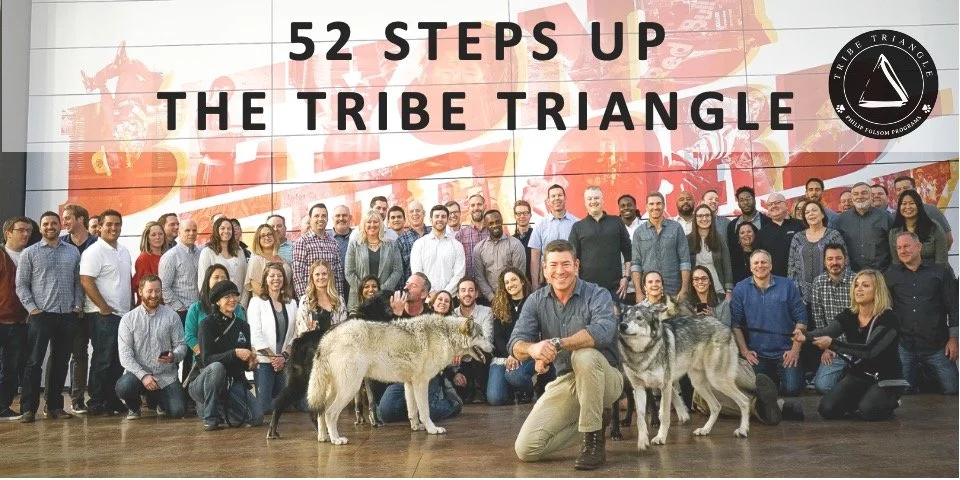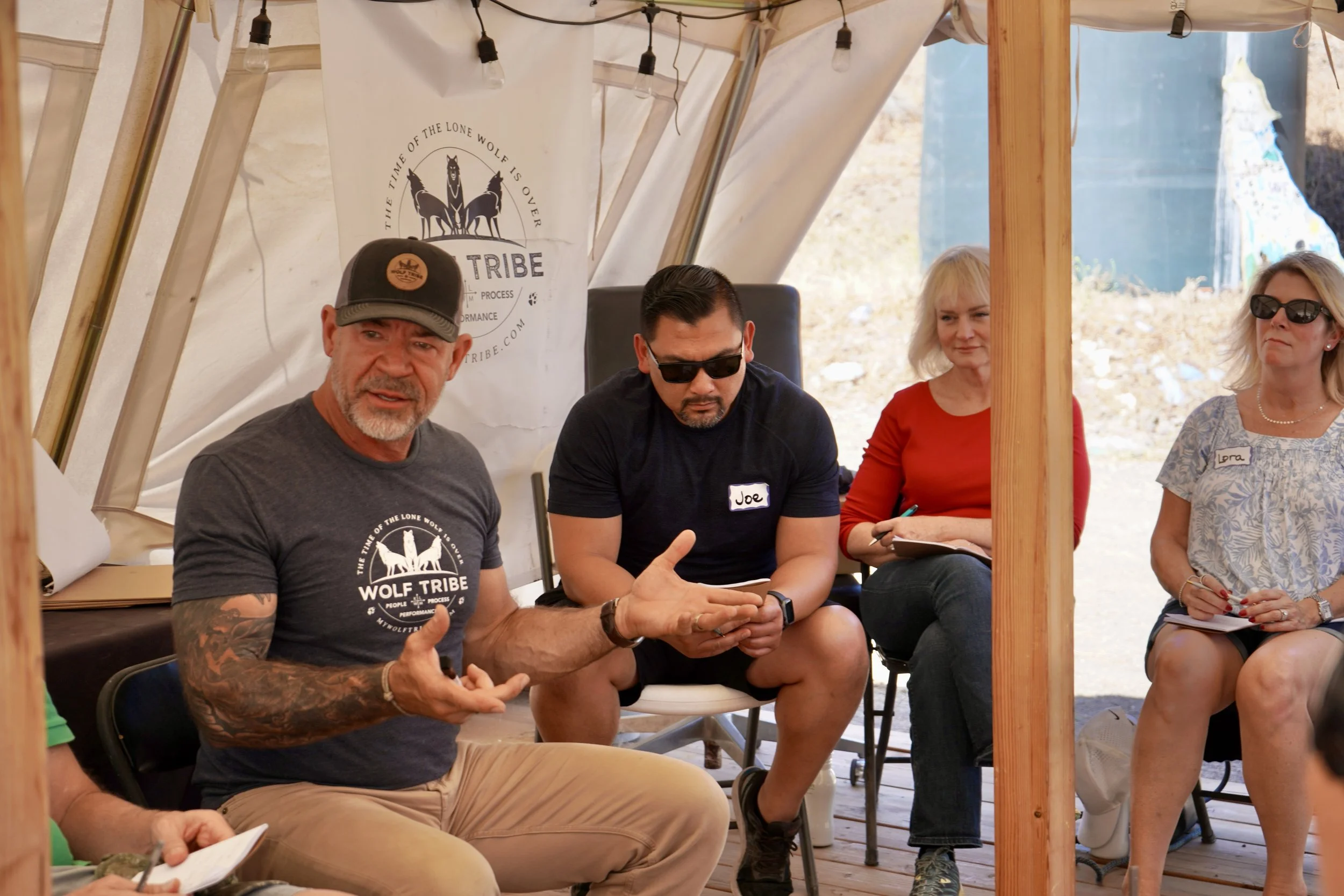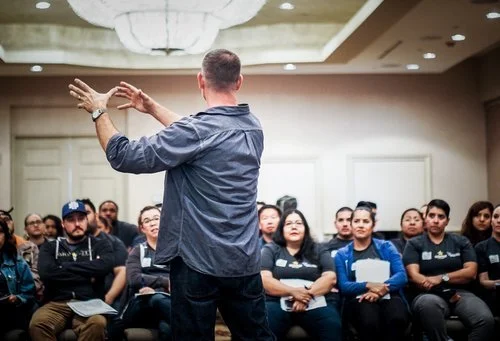Step 34 Up the Tribe Triangle: The Power and Process of Effective Delegation
“Delegation is the power to build a vision and a legacy
which is greater than yourself.”
-Philip Folsom
We are here to make a difference, or, as Steve Jobs said; to put a dent in the universe. The size of that dent and how long it lasts, depends on how well we learn to delegate because nothing of significance was ever done alone. This one leadership skill will determine whether you can scale into significance.
“We accomplish all that we do through delegation
-either through time or to other people.”
Stephen R. Covey
To begin understanding how effective and sustainable delegation works, we must first understand the difference between leaders and managers. If you are reading this, then you are a leader, however you may also be both a leader and a manager at different times, with different people and on different projects. Both roles are indispensable for the long-term success of your projects and tribe.
The difference between leaders and managers is that leaders are people who can see and create a future that does not currently exist and managers are people who implement and maintain what currently exist. Both functions are necessary for the sustainable success of your team and they both support each other in a symbiotic and reciprocal way, however, to enact delegation effectively, you must be in the leadership role and understand the management capacity of whom you are delegating to.
The military has a clear delineation of these two organizational functions and how they interact. Officers are leaders and enlisted soldiers are managers. There are overlaps in both roles because there are officers whose job it is to manage and there are enlisted soldiers whose job is to lead but even those enlisted soldiers who lead are referred to as non-commissioned officers.
Putting up the flagpole.
One of the best examples of delegation that I have ever heard of was one of the challenge questions on the promotion interview for officers in the army. The officer being interviewed was provided with a list of resources to install a flagpole.
These resources included a platoon of privates, a sergeant (a non-commissioned officer who both leads and manages the privates) and all the supplies required for the project including shovels, cement and other flag pole components. The challenge question to the officer was: as a leader, what is your first step in putting up the flagpole?
Most leaders today would view that challenge as a logistical exercise first and would begin that project with research into mixing cement, teaching the privates or reviewing project safety protocols. What would you do first as a leader needing a flagpole raised?
The correct answer is: “Sergeant, put up the flagpole”.
“Don’t tell people how to do things, tell them what to do
and let them surprise you with their results.”
General George S. Patton
Your job as a leader is to see the need for a flagpole and initiate the installation of that mission. The ideal first step in that project is to delegate it to your sergeant or manager. If you step down into the management role on that project you step away from leading your team toward the next phase your shared vision.
If you find yourself regularly micromanaging people and projects it means you are struggling with surrendering control or have not found, or made, your sergeants.
“No one will make a great business who wants
it all themselves or take all the credit.”
-Andrew Carnegie
Finding and building sergeants.
Leaders deal with vision and strategy. Managers deal with implementation and tactics. For a leader to be able to delegate and continue leading instead of managing, they need competent managers who have the ability to understand your vision and the ability to implement the mission. Finding and making these people is one of the greatest challenges of leaders in every arena throughout history. Those people are worth their weight in gold.
The only people you can effectively delegate to, understand and share your vision and have the competence to implement the missions that move your team toward it.
Vision is a deep understanding of the larger strategic purpose of the mission at hand. Have you made that vision crystal clear and do you have buy-in from your implementation team? Does your sergeant or manager have the mastery of skills, tools and process, to implement that shared mission? If your team does not have the ability to understand and implement your vision and mission you cannot delegate.
Find or develop these people first before you can delegate or you will become an underperforming, disappointed and dysfunctional leader. You will find that the development of these people is more of your actual legacy than anything else you do as a Tribe Leader.
If you delegate projects and missions you will create an engaged team, but if you delegate authority you create leaders on your team. What you will never be able to delegate is responsibility because the ultimate responsibility is up to you in who, how and when you delegate. Leadership consists of taking responsibility for everything that goes wrong and giving your subordinates credit for everything that goes well.
Remember, appreciation and purpose is always the second paycheck for your sergeants and that acknowledgment is often worth more to them than money. Pay it early and often. Do not expect that to be reciprocal. Praise starts with leaders and rolls downhill.
“The art of delegation is one of the key skills any entrepreneur must master.”
-Richard Branson
Click here to watch the video of Step 34: The Power and Process of Effective Delegation
Leaders Must Write and Speak
Answer these questions in your journal by really writing them down. Discuss them with at least one of your most important people and really listen to their response.
Where are you being forced into micromanagement of projects that could, or should, be implemented by your team?
What is the larger organizational cost of this? What could or should you be doing that would create larger, scalable results for your whole tribe?
What is your delegation challenge?
Your inability to surrender control?
A lack of your team understanding the larger shared vision that the current mission serves?
A lack of your team’s mastery or competence in conducting the mission?
Ubuntu,
Philip Folsom







